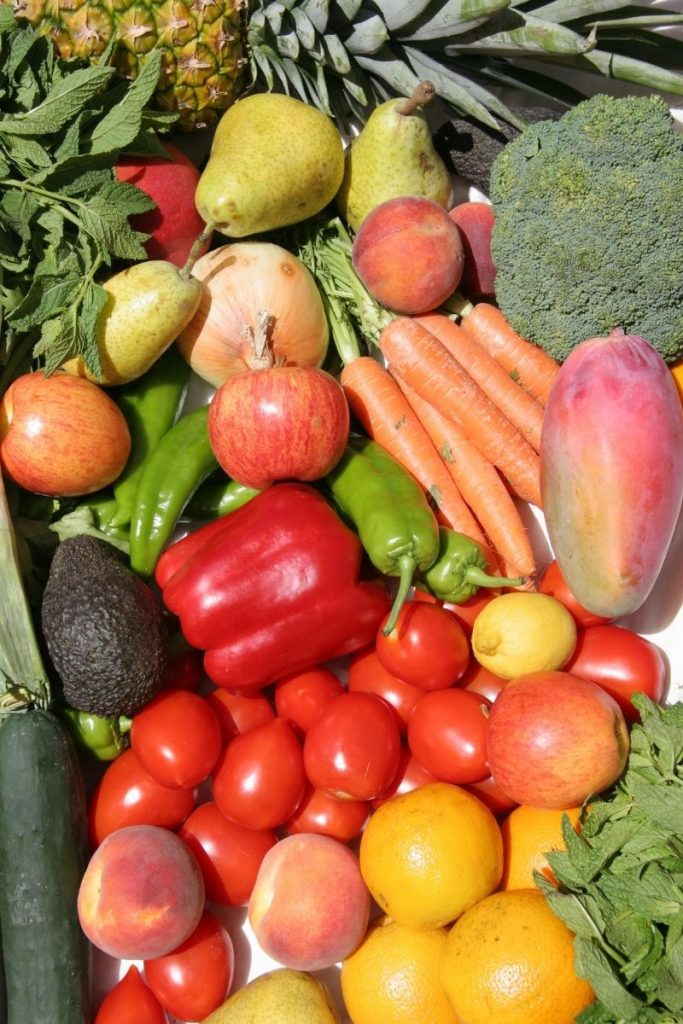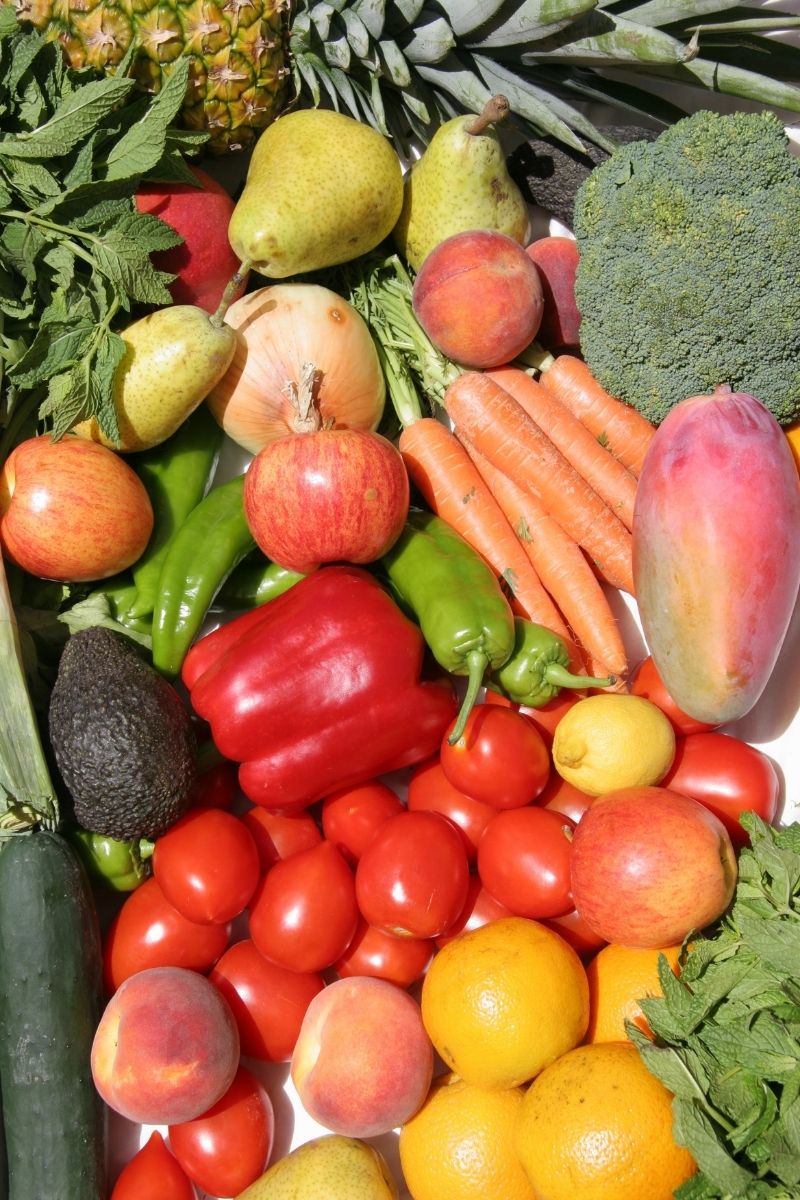
How Much Fruit and Veg Should I be Eating?
I believe we need to be eating 20 different kinds of fruit, veg and undenatured whole plant-based food every day.
The current government guidelines recommend that we eat 5 different portions a day which is based on World Health Organisation’s advice that we eat a minimum of 400g of fruit and veg a day to lower the risk of diseases and live a healthy life as possible. As far as I’m concerned, this target is too low and is far from providing us with a satisfactory diet for optimal health and disease avoidance. I believe WHO has set the bar low for it to be a realistic and achievable goal for the average person in the west who eats a diet made mostly of refined grains and highly processed foods with little or no nutritional value for us and I can’t be recommending 5 a day to my clients as it just doesn’t provide us with what we need for optimal health.
As we all know oranges are a good source of vitamin C but they don’t contain calcium whereas soybeans contain calcium but not much vitamin C. To get a complete array of the essential vitamins, minerals, antioxidants, and other micronutrients such as the natural pigments that give veg and fruit their colour, we need to be eating a spectrum of food every single day and we just can’t get all we need from a selection of only 5 whole foods.
Twenty seems a lot, right? But I’m not suggesting eating large portions, simply one or two cherry tomatoes, half a carrot, some mixed salad leaves (attributes to more than one of your 20), a handful of oats, two or three brazil nuts etc is enough to provide us with the goodness these things contain. When you come to think of it, 20 a day is not that hard to achieve. A chicken salad sandwich would probably have lettuce, tomato, and cucumber contributing to three and you can find a chicken sandwich in pretty much any convenience store (whether it tastes nice is a different matter).
When having breakfast think about how you can add in as many different whole foods as possible. I have porridge and I add; 2/3 walnuts, 1 brail nut, chia seeds, flax seeds, chopped apple, blueberries, and vegan protein powder. That gives me 8 in breakfast alone.
When making a family meal for the evening think about what you can add to boost the numbers. For example, your spag bol sauce could include garlic, onion, celery, carrot, oregano, tomatoes, and some turmeric perhaps. You could end up with 7 or 8 in a simple evening meal.
Here is a list of food groups that count towards your 20 a day:
When coaching my personal training clients we always set small very achievable goals every week and look to build progressively with the goals over time and I suggest doing the same here.
Start by committing to eating at least 10 varieties every day for the first week. Keep a daily tally on your phone notes app. After 7 days look back to see if you did it. If you did, move the bar a little higher for the next 7 days. And if you didn’t, look back and find out where you could have improved and set out a plan to improve in that area to hit at least 10 the next week. Work at completing little achievable steps before moving on.
Matt Jordan – the Energy Coach



